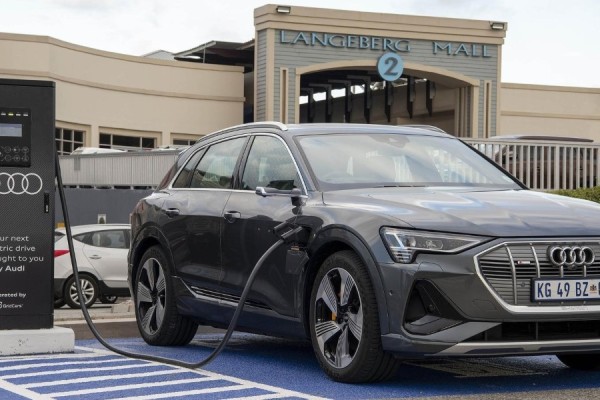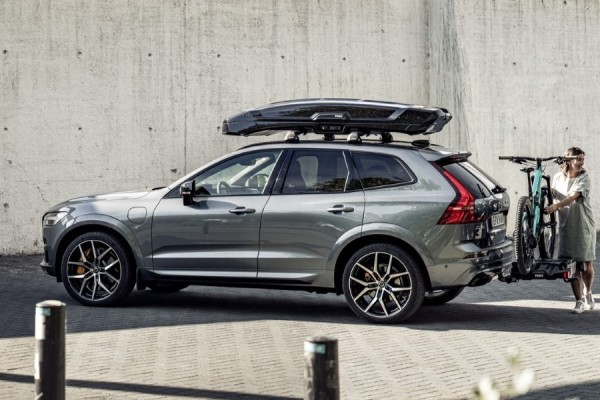Everything You Need to Know About 5G in South Africa

The 5th generation of mobile networking is here, and people have collectively lost their minds. Before discussing the controversies surrounding the technology, let’s dive into what it is exactly. Also, what does it mean to move to an area where 5G is available?
Should we be buying up property that has access, or running for the remote hills? Let’s find out.
What is 5G?
For most individuals born in the early 90s and 80s, it may be a surprise that we are now on our 5th-generation mobile networks. The first generation of 1G was delivered in the 80s and could only be used to transmit analogue voice signals.
These early generations of wireless networks were developed to a global standard.
5G enables those with compatible devices to tap into a new kind of networking experience, or simply put - it’s faster.
As a wireless technology, 5G technology is based on the principle of delivering information via frequencies or Orthogonal frequency-division multiplexing (or OFDM if you agree that that’s a mouthful), which modulates digital signals across several channels to reduce interference.
And if you were wondering, no one person or company is responsible for the invention of 5G. But rather several companies working within the ecosystem have brought it to life.
Now let’s talk about some of the regular controversies around 5G.
5G Controversies
We’ve all heard about the 5G conspiracies doing the rounds. It’s rather unsurprising that these have sprung up, as any new technology will be met with scepticism.
So, let’s talk about whether there are currently any health concerns.
Is 5g really dangerous?
Currently, there is no solid evidence that 5G frequencies will harm humans. While there are several studies you can read through, namely:
Effects of Short and Long-Term Electromagnetic Fields Exposure on the Human Hippocampus
This study looked at the effects of mobile phone use on the brain and cognitive performance. 60 female medical students were divided into low and high-exposure groups. MRI and neurocognitive tests were performed.
While there were no major structural changes in the brain, excessive phone use may lead to a lack of attention and concentration. More research is needed to understand the potential health impacts of 5G technology.
The development of 5G mobile networks means people will be exposed to higher frequencies in the microwave spectrum. To understand the potential effects of this exposure, researchers evaluated how age affects electromagnetic power deposition and heating at 26 GHz and 60 GHz.
They used a near-surface tissue model and considered the age-related changes in skin thickness, tissue electromagnetic properties, and blood flow decrease rate.
The results showed that while there were slight variations in power density, specific absorption rate (SAR), and heating in near-surface tissues due to age-related changes in tissue permittivity and blood flow, they were limited to about 10-15%.
This study reviewed 43 previous studies on the effects of mobile phone electromagnetic fields (EMFs) on human attention. The domains investigated covered selective, sustained, and divided attention.
The results showed that out of the 43 studies, 31 indicated no statistically significant difference between real and sham signals, while 9 showed a partial improvement in attentional performance with real exposure. The remaining 3 studies showed inconsistent or negative results.
The review concluded that there is a lack of evidence about the negative influence of non-ionizing radiations on attention functioning. However, due to the heterogeneity of the studies, it is difficult to generalize the results to everyday life. The study suggests further research is needed to clarify the issue.
Bottom line? More research is needed. None clearly state that 5G is harmful to humans. But, some studies with animals have indicated that electric magnetic fields (EMFs) can damage DNA in mice and rats. Then again, this is still an isolated study requiring more research.
Most of these studies focus on the use of EMFs and not 5G.
Now, while we’re heading down the rabbit hole - did 5G cause the COVID-19 virus?
COVID-19 and 5G
No connection between the two whatsoever, as well as no proof (sorry to disappoint folks).
👍 Next.
China and 5G?
The primary concern with the Chinese involvement with 5G is the allegations that their developed technology allows them to monitor information.
All Five Eyes international intelligence alliance members have stated that Huawei telecommunications equipment poses a security risk. However, only eight international countries have taken this step, with everyone else signing up for Huawei 5G equipment.
This is still an international developing story.
But with so many elements at play, it’s not surprising that individuals have been concerned.
Especially around the security of information.
Now that we have addressed the white elephant in the room, what are the pros and cons of living with 5G?
Pros and Cons of 5G
While having access to fast internet would seem like all positive news. And for the most part, it is good news. So, let’s talk about the positives!
Pros of 5G
The headline top positive with 5G is the potential speeds of up to 20 Gbps, which is 100 times faster than previous generations.
With previous generations' latency, the time that passed between actions and responses was pretty poor. But with 5G, it’s sped up to less than 5 milliseconds with a strong connection.
This latency reduction means that 5G will support new functionality, like the internet of things, AI, and real-time connectivity.
Another factor to consider is the increased capacity compared to previous generations. This means there will be no need to visit coffee shops for connectivity.
As a result, it also fuels new innovations. Now the downsides.
Cons of 5G
One of the biggest cons is the limited coverage for devices that can use it. A significant issue with 5G is that it can’t cast its frequency as far as 4G and will require more masts to increase its range.
Another disadvantage would be that a 5G signal will drain smart devices faster when compared to the previous generations.
As mentioned, there is a fair amount of concern over cyber security. Another element that makes 5G a security risk is the fact that a faster connection allows hackers easier and faster connective to your sensitive information.
Now, are you moving to an area where 5G connectivity is available?
Is There 5G Coverage At Your Home?
It’s never been easier to determine whether your new home has 5G coverage. As you can see for the map below, coverage is still a massive issue - so probably you won't have coverage just yet. Put away the foil cap, Karen.

Map courtesy of www.nperf.com
5G Providers
The race for 5G domination is on and local network providers are scrambling to lead the way. Let's take a look at the top 5G providers in South Africa.
Vodacom 5G - As one of the largest mobile networks in South Africa, Vodacom is leading the charge when it comes to 5G. With coverage in major cities like Johannesburg, Cape Town, and Durban, Vodacom does have 5G and if your device is 5G ready it is the go-to choice for many South Africans looking to upgrade to 5G.
MTN 5G - Another big player in the South African mobile network scene, MTN has also been quick to roll out 5G coverage across the country. With plans starting at just R699 a month, MTN is a solid option for anyone looking to make the switch to 5G.
Telkom 5G - While not as popular anymore (yes, Telkom, South Africans are not happy with your outdated customer service), Telkom is somewhat making a name for itself in the 5G game. With coverage in major cities like Johannesburg and Pretoria, Telkom's 5G network seems to be fast, reliable, and relatively affordable.
Rain 5G - If you're looking for a more budget-friendly option, Rain is definitely worth considering. With plans starting at just R529 a month, it’s definitely cost-effective. Is Rain 5G good? Its 5G network may not be as extensive as some of the other providers on this list, but if you have it, it’s stable and it's a great choice for anyone on a tight budget.
Cell C 5G - Last but not least, we have Cell C. While not as well-established as some of the other providers on this list, Cell C's attempt to enter the 5G race is nothing to scoff at. We wait patiently to see what they’ll do in the coming months.
There they are, the top 5G providers in South Africa. Whether you're a Vodacom die-hard or looking to save some cash with Rain, there's a 5G provider out there for everyone.
Ready to embrace 5G? It's ok if you're not
So, if you’re considering upgrading to 5G, you have all the info you need to make an informed decision in South Africa. Moving to an area with 5G might take a bit of planning, but that is due to change over the coming years. Now if you'll excuse me, I'm off to see if I can get 5G coverage in the middle of the Kruger National Park. Wish me luck!
What do our customers say?























